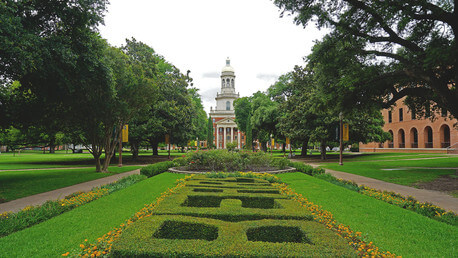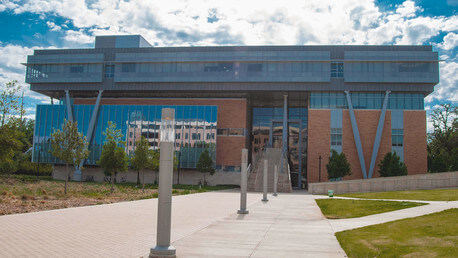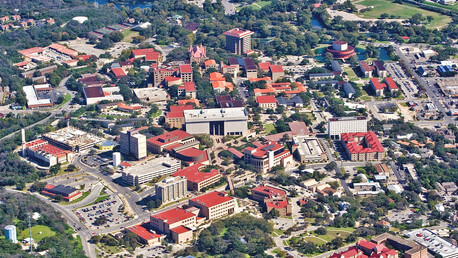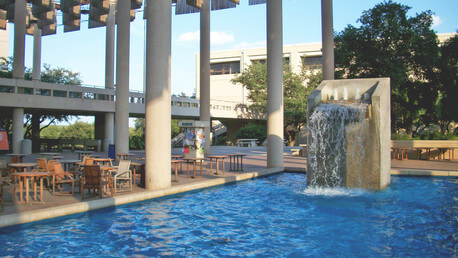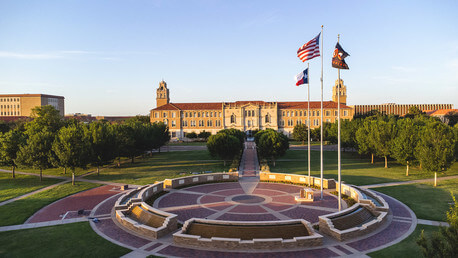Academics
Key Academic Stats
Highest Degree Offered
Doctorate
Total Number of Students
2,328
Total Number of Undergrads
1,453
Non Traditional Learning
- Online Classes
- Online Undergrad Degrees
- Summer Sessions
- Combined Institution Double Degree Programs
- Some Programs Requires Co-Op/Internship
Learning Options
- ROTC Army
- ROTC Air Force
- Study Abroad
- Teacher Certification Offered
Student:Faculty Ratio
12:1
US National: 21:1Classroom Sizes
0
100
62%
Graduate in 4 Years US National: 28%
0
100
69%
Graduate in 6 Years US National: 52%
Faculty Overview
Gender
Ethnicity
What Students Are Saying
UD professors really challenge students to think about things, develop their own arguments, and make connections with what they’re learning in one class to what they’ve learned in another. This dynamic is facilitated by the Core Curriculum – every UD student is required to take specific History, English, and Philosophy classes, in addition to politics, art, and economics. Admittedly, some professors are easier than others, and you can manage the difficulty of your classes by asking around for who is and isn’t a hard teacher. That being said, I would highly recommend taking the hard teachers (Moran for Lit Trad is wonderful); they really make the UD experience special. Dr. Olenick in Physics and Dr. Hendrickson in Chemistry are especially noteworthy as exceptional professors for those interested in the sciences. Overall, I am very happy with the education I am earning at UD!
Olivia
As previously stated, be motivated. Especially if you're a science major--you need to work to stay here. UD will challenge you and propel you to pull all nighters and shed tears and sweat.
Kim from Arlington, TX
As a Biology/English double major with a concentration in Pre-Health studies, I can say that the English department at UD is unparalleled. Most of its professors come from the Ivy Leagues, and the ones who do not are equal in caliber.
If you are coming for English studies, you will find it hard attempting to master the Greek, Roman, and Old English epics, along with Dante's Commedia and Milton's Paradise Lost (don't worry, it's technically impossible), but will especially love the upper-level classes. That's when I really started to develop a love for the curriculum.
All the humanities-- philosophy, theology, English, etc.-- are taught by solid, rigorous professors across the board. Lots of reading, but work hard and you'll get into the swing of it relatively quickly.
The sciences:
The Biology department is solid. Dr. Doe has connections at literally every medical school in Texas; Dr. Cody is an amazing scientist and a solid teacher; among others the newcomer Dr. Phillips is an excellent teacher and fair grader. Very rigorous, but an excellently broad and deep knowledge of biology is to be had here.
The Physics department is also solid; Dr. Moldenhauer and Dr. Sally Hicks, not to mention a plethora of others I just haven't taken are all excellent and are open to being bothered about difficult problems for hours every day. I would sit in Moldenhauer's office for about 6 hours a week asking him about concepts for my Gen Phys class.
Similar comments for the Chemistry department. They are all solid, excellent professors who have been here for many years, and will make sure you walk away with a highly in-depth knowledge of their subject. Very hard work for me, but all the chemistry I've taken here (O'Hara program, Organic Chem) is all extremely rewarding and will be very useful in my career.
Last note: All the professors (or almost all) are extremely available to their students, both in class and out of it. They are required to have office hours...
If you are coming for English studies, you will find it hard attempting to master the Greek, Roman, and Old English epics, along with Dante's Commedia and Milton's Paradise Lost (don't worry, it's technically impossible), but will especially love the upper-level classes. That's when I really started to develop a love for the curriculum.
All the humanities-- philosophy, theology, English, etc.-- are taught by solid, rigorous professors across the board. Lots of reading, but work hard and you'll get into the swing of it relatively quickly.
The sciences:
The Biology department is solid. Dr. Doe has connections at literally every medical school in Texas; Dr. Cody is an amazing scientist and a solid teacher; among others the newcomer Dr. Phillips is an excellent teacher and fair grader. Very rigorous, but an excellently broad and deep knowledge of biology is to be had here.
The Physics department is also solid; Dr. Moldenhauer and Dr. Sally Hicks, not to mention a plethora of others I just haven't taken are all excellent and are open to being bothered about difficult problems for hours every day. I would sit in Moldenhauer's office for about 6 hours a week asking him about concepts for my Gen Phys class.
Similar comments for the Chemistry department. They are all solid, excellent professors who have been here for many years, and will make sure you walk away with a highly in-depth knowledge of their subject. Very hard work for me, but all the chemistry I've taken here (O'Hara program, Organic Chem) is all extremely rewarding and will be very useful in my career.
Last note: All the professors (or almost all) are extremely available to their students, both in class and out of it. They are required to have office hours...
Brendan from San Juan Capistrano, CA
It is a huge commitment, and overall the course work will involve a lot of your time. From what I am finding out about my reading list and what's ahead for me: To make the grade, this isn't just some ordinary English course. It is vivid work, that involves you to be very meticulous. You're going to read everything form the Bible to the Iliad. You will grow as a student, there's no way you can ignore the work that's been put in.
Amir from Dallas, TX

